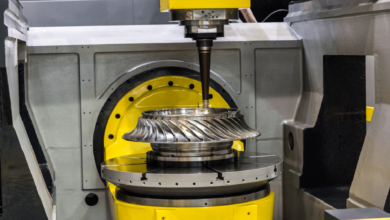Importance of Hydrogen Gas Detectors in Modern Technology

The rise of hydrogen as a clean energy source has brought attention to safety concerns, making the use of a hydrogen gas detector critical in various industries. This article explores how hydrogen gas detectors work, their applications, and why they are essential in ensuring safety in environments where hydrogen is present.
Understanding Hydrogen and Its Risks
Hydrogen is widely recognized for its potential in clean energy technologies, from fuel cells to industrial processes. However, hydrogen is highly flammable and can be explosive when mixed with air in certain concentrations. Due to its low molecular weight, hydrogen easily disperses, making leaks difficult to detect without specialized equipment.
The invisible and odorless nature of hydrogen gas means that any leak can go unnoticed, leading to potentially hazardous situations. That is where a hydrogen gas detector plays a vital role by providing early warning signals to prevent accidents.
See also: Business Helpline 3069103454 Support Line
How Hydrogen Gas Detectors Work
Hydrogen gas detectors are devices designed to sense the presence of hydrogen in the environment and alert users to unsafe concentrations. Different technologies are employed in these detectors, each with its strengths:
Electrochemical Sensors
Electrochemical sensors operate by producing a current when hydrogen gas reacts chemically with the sensor’s electrodes. This method offers high sensitivity and selectivity to hydrogen but may require periodic calibration.
Catalytic Bead Sensors
Catalytic sensors detect hydrogen by oxidizing the gas on a heated catalyst, producing heat proportional to the gas concentration. These sensors are widely used for combustible gas detection but may be affected by poisoning from other chemicals.
Semiconductor Sensors
Semiconductor sensors use materials whose electrical resistance changes when exposed to hydrogen. These detectors are compact and cost-effective but can be less specific, sometimes responding to other gases.
Optical Sensors
Optical detection techniques, including infrared and laser absorption, offer high accuracy and fast response times. These sensors are increasingly used in advanced hydrogen detection systems.
Key Features to Consider in a Hydrogen Gas Detector
Choosing the right hydrogen gas detector depends on various factors. Some important features include:
- Sensitivity: The detector should accurately sense low concentrations of hydrogen to provide timely alerts.
- Response Time: Quick detection is critical for preventing dangerous buildups.
- Durability: Depending on the environment, detectors must withstand harsh conditions such as high humidity, temperature variations, or corrosive atmospheres.
- Portability: For some applications, portable detectors allow flexible monitoring across different sites.
- Alarm System: Visual and audible alarms ensure immediate notification of hazardous gas levels.
Applications of Hydrogen Gas Detectors
Hydrogen gas detectors find use in many industries where hydrogen is produced, stored, or utilized.
Industrial Manufacturing
Hydrogen is commonly used in refining, chemical manufacturing, and metal processing. Detectors are installed to monitor storage tanks, pipelines, and reactors to prevent leaks and ensure worker safety.
Energy Sector
With growing adoption of hydrogen fuel cells and hydrogen-powered vehicles, detectors are essential in refueling stations and vehicle maintenance areas.
Laboratories and Research Facilities
Research involving hydrogen gas requires stringent safety measures, where continuous monitoring with detectors is mandatory.
Residential and Commercial Buildings
In emerging hydrogen-powered residential heating systems or commercial applications, gas detectors provide a safeguard against accidental leaks.
Benefits of Using Hydrogen Gas Detectors
Implementing hydrogen gas detectors brings several advantages:
- Enhanced Safety: Early detection prevents fires and explosions, protecting lives and property.
- Regulatory Compliance: Many countries mandate gas detection systems in workplaces handling hydrogen.
- Operational Efficiency: Detecting leaks promptly minimizes downtime and costly repairs.
- Environmental Protection: Preventing hydrogen release helps maintain ecological balance.
Maintenance and Calibration of Detectors
Regular maintenance and calibration are crucial to ensure hydrogen gas detectors function effectively. Calibration involves exposing the detector to known hydrogen concentrations to verify accuracy. Most manufacturers provide specific schedules for maintenance, which must be followed diligently.
Future Trends in Hydrogen Gas Detection Technology
Advancements in sensor materials and electronics are driving improvements in hydrogen detection:
- Development of more selective sensors that reduce false alarms.
- Integration of wireless and IoT technologies for real-time remote monitoring.
- Miniaturization of detectors for seamless incorporation into hydrogen-powered devices.
- Enhanced data analytics to predict leaks and prevent failures.
Conclusion
As hydrogen continues to gain importance as a sustainable energy source, the role of hydrogen gas detectors becomes indispensable. These devices safeguard people, facilities, and the environment by providing early warnings of potential hazards. Understanding the different types of detectors and their applications helps industries make informed choices to enhance safety and operational success.
Employing reliable hydrogen gas detectors ensures that the benefits of hydrogen energy can be enjoyed without compromising safety, paving the way for a cleaner and safer future.





